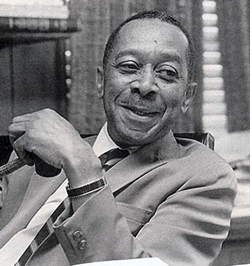Kenneth Clark, born in 1914, grew up in Harlem, N.Y.. Clark was a psychologist and a Civil Rights Activist. He is most well known for the famous doll studies conducted by himself and his wife, Mamie Phipps Clark. The thesis behind this study, “The Development of Consciousness of Self in Negro Preschool Children,” was actually written by Mamie while she was obtaining her master’s degree. Clark took an interest in her research and became a partner in the doll studies, suggesting that they also look at self-identification in African American children.
During the doll study, Clark and his wife would ask African American and White children to show them a doll based on a series of statements:
- “Show me the doll that’s a white doll.”
- “Show me the doll that’s a brown doll.”
- “Show me the doll that you like to play with.”
- “Show me the doll that’s a nice doll.”
- “Show me the doll that’s a bad doll.”
- “Show me the doll that looks like you.”
Clark explained in an interview that some African American children were so upset with their answer to the last question that they would cry, leave the room, or refuse to answer. The findings from this experiment showed the negative effects segregation had on African American children. While studying self-identification, they also found high amounts of internalized racism.
Their findings were used in the ruling of Brown v. Board of Education, ending racial segregation in American public schools.
In 1946, Clark and his wife opened the Northside Center for Child Development in his hometown of Harlem. It was one of the first child guidance centers in the area to offer families psychological and casework services. The Northside Center for Child Development is still running today and has been helping children develop resilience, confidence, and self-worth for over 70 years.
The Clarks were the first African Americans to receive a PhD in psychology from Columbia. Clark was head of the Board of Education in New York City. He worked hard to integrate schools, decrease class sizes, improve curriculum, and update facilities. He was also the first African American president of the American Psychological Association.
More resources:
http://www.cnn.com/2010/US/05/13/doll.study/index.html
https://www.northsidecenter.org/our-mission.html
http://digital.wustl.edu/cgi/t/text/text-idx?c=eop;cc=eop;rgn=main;view=text;idno=cla0015.0289.020
http://www.apa.org/pi/oema/resources/ethnicity-health/psychologists/clark.aspx
http://www.naacpldf.org/brown-at-60-the-doll-test
